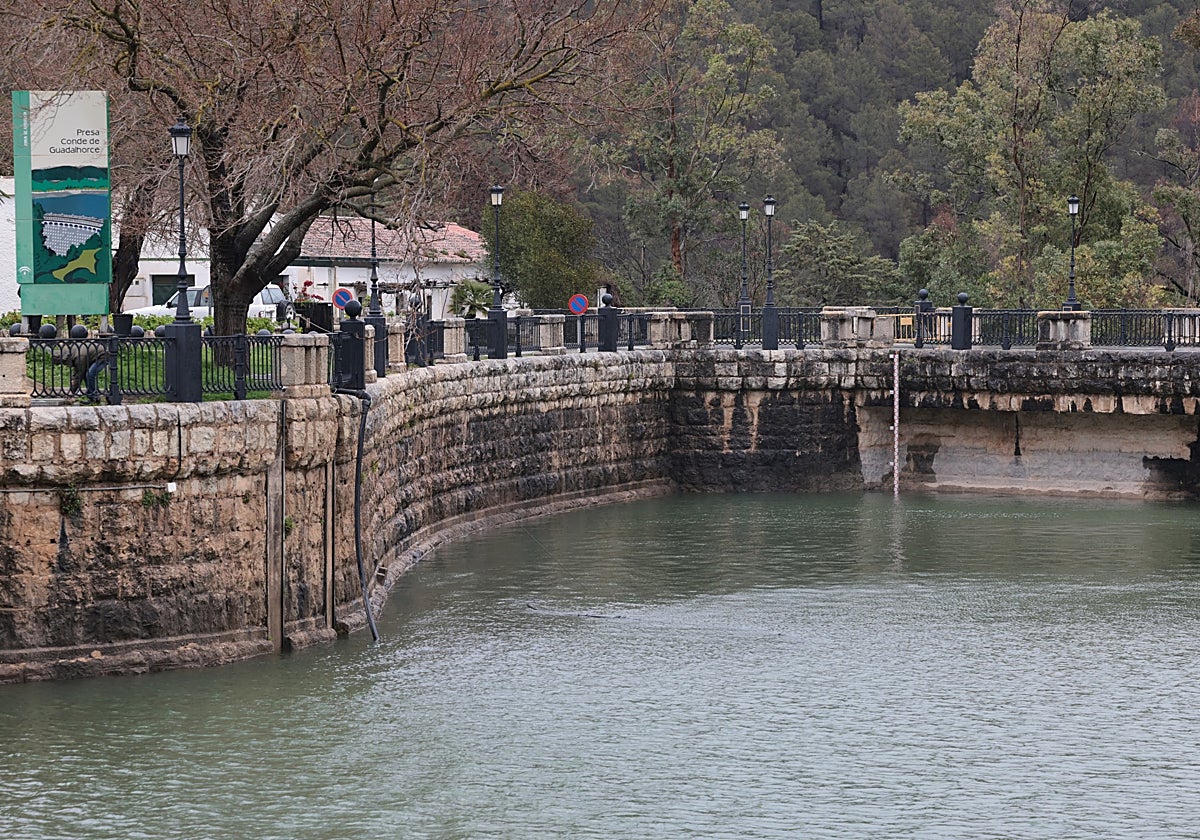Changes to drought restrictions in Malaga: filling of swimming pools, beach shower service and garden irrigation to resume
The city enters a stage of pre-alert thanks to the new regulatory framework, following the season of storms that has improved the drought situation across the province
Now that the Junta de Andalucía's drought committee has officially published the new water regulations in the regional gazette (BOJA), it is becoming clearer which areas of life in Malaga city and the province will see partial or full lifting of usage restrictions.
For example, due to the relative normality of the city's Guadalhorce-Limonero system, a maximum allocation of up to 225 litres per inhabitant per day has been established. Water supply company Emasa has been urged by the regional government to draw from the Aljaima and Fahala wells and from the Guadalhorce flow (minimum 1 million cubic metres per month, which is a quarter of consumption). Agricultural irrigation also sees an improvement compared to last year, with allowances rising from 9 to 30 million cubic metres.
The Guadalteba reservoir exceeds 82 million cubic metres and the Conde de Guadalhorce is on its way to 65. The Guadalhorce is around 61 and the two defensive reservoirs, Casasola and Limonero, are close to 16 and 14, respectively. Together, the reservoirs surrounding Greater Malaga have reached 238 million cubic metres, well above the 71.4 million cubic metres that once marked the threshold of serious drought.
New scenario
As a result, Malaga city council has lifted the restrictions on the use of drinking water. The situation is now in pre-alert.
Residents and companies are now allowed to start using water fit for human consumption to fill private swimming pools, wash the streets, water gardens, as well as public and private parks and gold courses, wash cars outside authorised establishments, fill fountains that do not have a closed water circuit and reopen public showers.
Back in January this year, Malaga mayor Francisco de la Torre, encouraged by the improved water situation and supported by the regional government, issued a decree regarding certain exceptions to the water-saving measures put in place due to the drought. These included reactivating the city's 329 drinking fountains, allowing survival watering of public and private green areas once a week and permitting the refilling of swimming pools, among other things.
Beaches
Now, the rest of the limitations will also be lifted. The beaches department plans to activate public showers from 15 June onwards, coinciding with the start of the high season. Feet-washing showers have been operational since Easter.
The lifting of these restrictions is conditional on continuing to comply with the maximum allocation of 225 litres per inhabitant per day. In the past two years, the maximum allocation was 169 litres per inhabitant per day - a measure that the city council had adopted in view of the drought crisis.
Despite the improvement in the hydrological situation, the city council urges citizens, organisations, companies and other social groups to make a rational, responsible and supportive use of an otherwise scarce resource.

